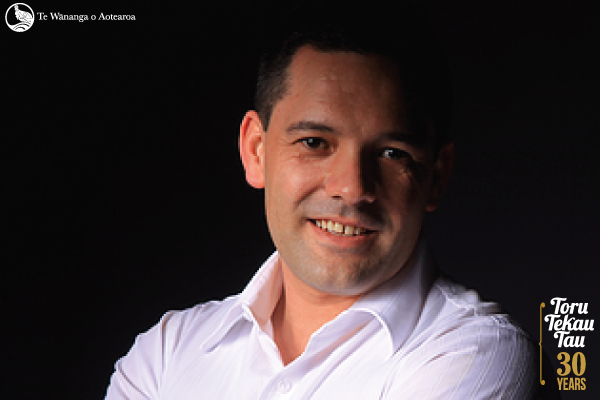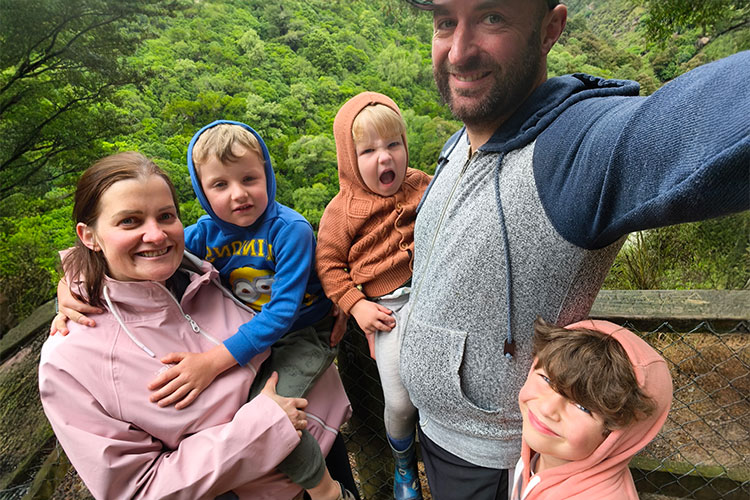Picture from www.darylbrougham.com
Christmas should have been the one bright day of the year for a kid who had nothing.
But for then 8-year-old Daryl Brougham it was just another day that he’d be on the receiving end of yet another vicious beating at the hands of those charged with his care.
“I was with a family that had their own kids and obviously they got treated differently to me as a foster child. They all got presents and were opening them and I was excited and waiting for my one but I got nothing,” he said.
“I was angry and hurt, I mean, I was a kid, so I decided to walk down the driveway and head down the road.”
His escape was shortlived, however, and after he was spotted by his caregiver about 15 minutes later he was back to face his punishment.
“I had to sit on a chair in the middle of the room and every child in the foster home was told to hit me whether it was with a bat or with their fist.”
“If I wasn’t hit hard enough the foster parent would close their fist and just whack me. I remember it clearly, this was Christmas Day and I was 8.”
Daryl’s life story as a ward of the state, which began a few months after he was admitted to hospital with urine burns and severe eczema as a three-month-old baby, is a horrifying and intensely sad one that beggars belief.
As a young boy growing up believing his surname was “Foster”, his life was a spiral of emotional, physical and sexual abuse from so-called “caregivers” – the majority of whom were not approved by social agencies.
It’s also a heartbreaking one as he recalled being removed from the few families who truly cared for him.
Daryl, 35, was placed with 79 different foster homes from infancy.
When he turned 18 he was no longer a responsibility of the state and he left the family he was staying with to sleep in his car.
His catalogue of abuse and neglect saw him exposed to predators and suffer hundreds of beatings or cruel punishments.
“The jug cord was popular so was the bamboo stick and cutting grass with a pair of scissors was a big one - that would take all weekend,” said Daryl.
“I remember being so thirsty one time that I had to sneak out of my room and drink out of the toilet because I was too afraid to go to the kitchen.”
When Daryl received an official apology from Ministry of Social Development chief executive Brendan Boyle earlier this year for his years of maltreatment it revealed 40 serious cases of misconducts by social workers and caregivers against him.
It would have been easy, perhaps understandable even, that he could have rebelled and fallen foul of the law.
“But I didn’t because I always held on to the hope that the next family I would be placed with would be better.”
While he was failed miserably by those responsible for his care, the system and the 30-plus social workers who oversaw his case, Daryl chose a surprising route in life.
“I had been forced to eat spiders at one place I was staying at and my behaviour escalated to the point where the caregiver rang Child and Young Person Services and said “take this kid away”.
“I was about to express myself to the social worker when the social worker said “Daryl, the way you are going you are going to end up in jail”.”
“I looked at him and thought “I’m going to become a social worker and I will do things differently and better”.”
Daryl completed a Bachelor of Social Work earlier this year through Te Wānanga o Aotearoa in Mangere through whom he reconnected with his iwi, Ngāti Maniapoto.
He now works with Child, Youth and Family, who are drawing on his experiences to try and improve the lot of the 4,000-odd children in state care, half of whom are Māori according to Daryl.
His presentations to staff in social agencies and caregivers has forced some to re-evaluate their careers.
“Some people have quit their jobs, others have walked out of the room in tears and some have said they want to do their jobs better.”
He is hoping his new book “Looking through the eyes of a foster child” which details his horrific experiences will help social agencies and caregivers better understand the needs of foster children.
“At the end of the day…I understand the social worker’s role and the foster carer’s role. When you put those things together then go into a social work role you see things so differently.”
“We have run down the track with the same people and the same ideas and system and the (Children and Young Person’s) Act hasn’t changed since 1989. Someone with fresh eyes has to go in there. I really think I can help here.”
Daryl is trying to raise funds to publish his book “Looking through the eyes of a foster child” via a givealittle page.
Donations can be made here >> https://givealittle.co.nz/cause/darylbrougham01




































